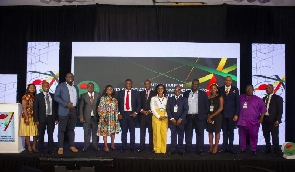A total of 14 commodity exchanges on the continent have agreed to harness their collective potential under the African Continental Free Trade Area (AfCFTA), in what market watchers have described as one of AfCFTA’s biggest feats thus far.
High on the AfCFTA Association of Commodities Exchanges’ (ACX) agenda, the body is to work collectively on making the continent food-secure and promote market efficiency through sharing knowledge and best practices. ACX will encourage the adoption of modern trading practices including electronic trading platforms and standardised contracts, as well as enhance market information across the continent. This will enhance market efficiency, reduce transaction costs and attract greater participation from both domestic and international traders.
The Association also aims to enhance advocacy efforts by engaging with relevant stakeholders, including government agencies and industry experts, to help raise awareness about the role of commodity exchanges in price discovery, risk mitigation and market access; thereby driving policy reforms that facilitate the growth of efficient and transparent commodity trading platforms across the region.
This is particularly key, given that the formalised commodity trading space in most AfCFTA markets is at a nascent stage – with the exception of South Africa.
The ACX initiative is spearheaded by the Ghana Commodity Exchange (GCX), and will most importantly facilitate cross-border trade. Under this, ACX hopes to work closely with AfCFTA on harmonising trade regulations, simplifying Customs procedures and expediting cross-border transactions.
At an event in Accra dubbed the ‘Maiden Forum: AfCFTA Association of Commodities Exchanges’ and themed ‘Connecting Africa: advancing regional trade through commodities exhanges’, the Chief Executive Officer of GCX and convener of the gathering, Tucci Ivowi, declared that there is no better time for African commodity exchanges to contribute in the realisation of a common African market than now.
“One thing we believe is that if we come together with one voice, we can achieve our common goals and promote certain policies – and we can move much, much faster than if we are working as individuals.
“We have some commodities which are not available in other markets, so the idea is to link together and ensure that food security is no longer a concern across our region; and that we can also provide commodities which we all need across the continent,” she said.
The ACX is under the umbrella of AfCFTA – specifically under the Guided Trade Initiative, which is trying to match countries and products. As explained by Mrs. Ivowi, the overarching goal of the African Commodities Exchanges is to help build capacity and leverage synergies, opening up endless opportunities for cross-border commodity trading within the free trade area.
“Different African countries have established commodity exchanges and we are at different stages; there are common challenges across the board, but we also see common opportunities. So, we gathered together all the commodity exchanges in Africa to really sit down and have a dialogue about how we can work together on areas such as promoting food security, collaborating for inter-regional trade – and also to ensure market efficiency across the continent,” the GCX CEO added.
In all, 14 active commodities exchanges are joining forces; and the move is widely viewed by respective participatory countries as apt, given the common trading framework established by AfCFTA.
Common African commodity exchange
Asked if she foresees a common African commodity exchange, she responded in the affirmative, saying: “Possibly yes – each country has its characteristics, each has its commodities; and there may be some areas where a common commodity exchange could help. But at the same time, the fact that we all operate electronic platforms which are interlinked, or can be interlinked, means that we can all trade easily among ourselves without necessarily having a common exchange”.
Overcoming liquidity constraints
On the challenges faced by GCX and the continent’s other exchanges, Mrs. Ivowi concluded that, following interactions with her peers and other industry stakeholders, they are pretty much the same everywhere – with inadequate liquidity being the dominant concern.
“One of the key things at the early stages of a commodity exchange is to build liquidity, whether you are going into a market or you are a new player. All successful commodity exchanges have taken many years to get there, and I have no doubt that we will get there one day,” she expressed.
Apart from South Africa which has a well-developed commodity exchange, the rest of exchanges on the continent are at a nascent stage.
To get there, however, she emphasised the need for large buyers and sellers – adding that policy initiatives, such as making it mandatory for certain commodities to go through the exchange, would also be helpful.
The other option advocated by Mrs. Ivowi is working with financial institutions to build liquidity.
Business News of Friday, 13 October 2023
Source: thebftonline.com













